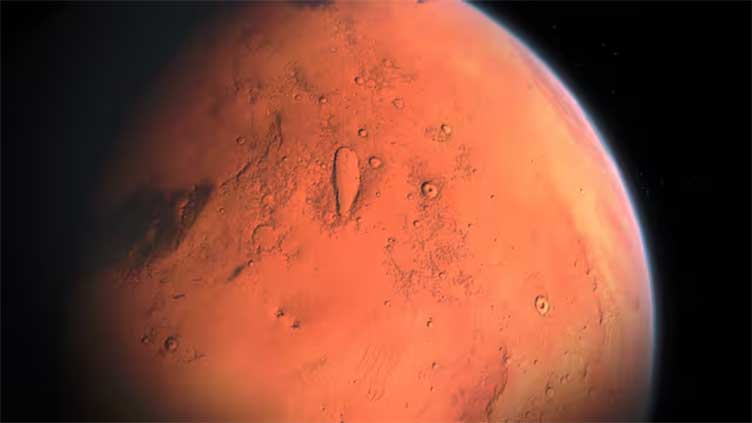Seasonal changes may have caused Mars to lose water: study

Technology
Mars once had water but now it's barren
(Web Desk) - In a joint study between NASA's Mars Atmosphere and Volatile Evolution (MAVEN) and the Hubble Space Telescope, it was observed that Mars may have lost its water because of the seasonal changes on the planet.
More than three billion years ago, the Red Planet was warm and wet and had large water bodies on its surface along with a thicker atmosphere.
However, today Mars is barren, dry and cold. So, where exactly did the water disappear?
"There's only two places water can go," said John Clarke of the University of Boston, in a statement.
"It can freeze into the ground, or the water molecules can break into atoms, and the atoms can escape from the top of the atmosphere into space," he added.
There is still plenty of water on Mars. It has been observed that vast reservoirs of water are locked deep underground at depths between 11.5 and 20 kilometres (7.1 and 12.4 miles).
The surface of Mars has sufficient water inside it which is the global equivalent layer (GEL) - refers to how deep a planet-wide ocean it can create.
Meanwhile, water-ice in small amounts is also locked inside the shallow permafrost and in the polar ice caps of Mars.
According to John Clarke and his team in the Center for Space Physics at Boston University, it is important to understand the fate of water on Mars for which it is important to track the escapee atoms.
Scientists, by measuring the number of hydrogen atoms going into space and the current escape rate, can trace water's history on the planet.
In the atmosphere of Mars, the sunlight is suspected to have dismantled the water molecules and divided them into two types of atoms - which are hydrogen and deuterium or “heavy hydrogen.”
Mars does not have a magnetic field, unlike Earth, because of which the solar wind directly interacts with the atmosphere.
Because of these interactions, light gases like hydrogen, get stripped from the atmosphere.


